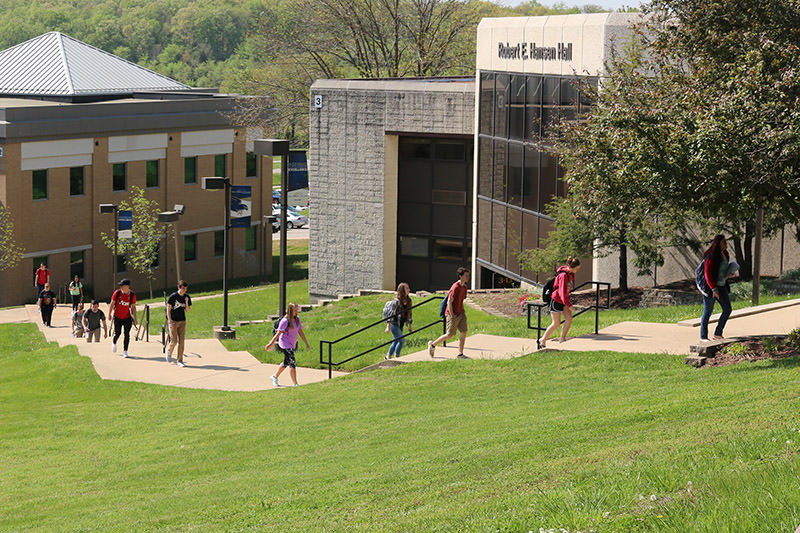
ECC Receives Funds for Student Career Guidance and Mental Health Support Center
East Central College has received $871,761 in state funding to create a new Center for Career Advancement and Student Wellness on the Union campus.
On Wednesday, June 16, the Coordinating Board for Higher Education (CBHE) approved the college’s request to the Missouri Department of Higher Education and Workforce Development (DHEWD) for the Governor’s Emergency Education Relief (GEER) Excels funds to renovate the former Heating, Ventilation and Air-conditioning (HVAC) lab in Hansen Hall for the new center. The HVAC program was moved to the Business and Industry Center in 2016.
The new center will assist students with registration and completion of short-term training programs, with the goal to provide job skills to enter the workforce or continue to enhance their education to obtain a certificate or a two-year degree.
The center will better serve the needs and demands of the local workforce, especially in advanced manufacturing and health care industries, that are in desperate need of qualified and skilled employees.
In additional, short-term training programs for other high-demand industries will also be available including, information technology, HVAC, logistics and early childhood development.
The renovated areas of Hansen Hall will also be used to house the college’s Adult Education and Literacy (AEL) program, including office space and class space. The minor demolition work of the former HVAC lab and construction of the new center is tentatively scheduled to begin in January 2022 to be completed in late spring of 2022.
“I’m excited to have the funding to create this new center for our students,” said Dr. Jon Bauer, ECC president.
“Increasing career counseling and mental health resources to our students is vital to their success, especially at a time when mental health is so important to a student’s well-being. The enhanced career counseling resources will better prepare our students both personally and professionally. “
Services
Plans call for the 3,560-square-foot area in Hansen Hall to be converted into two classrooms, a training lab and five offices. Within the classrooms, various groups and classes will meet, including AEL students and Certified Nurse Assistant and Certified Medication Technician students.
Five offices will be created for AEL staff, a CNA/CMT instructor, a Career Navigator and a Social Services Navigator.
The Social Services Navigator will support all ECC students and assist those who lack essential resources for success and who may be anxious about returning to classes in person. The role of the navigator is to advocate for those with mental and physical health needs.
With resources in the college and from local service providers, students will be referred to the appropriate services. A social worker will act as an advocate for the student to connect them with the resources they need.
The Career Navigator will work with students through their education experience to help them identify the best Career Pathway for their specific interests and career goals. The Career Navigator services include resume building and job search services, and services to assist students in developing a personal and professional development plan.
It will be the responsibility of the Career Navigator to help students progress through their selected career pathway. This could include helping them enroll in partner programs before and after the short-term training is completed, working with financial aid, and verifying eligibility for other funding sources.
The hiring process of the two navigator positions will begin in July to have the positions ready to assist students for the 2021 fall semester.
Funding
Through the Coronavirus Response and Relief Supplemental Appropriations Act (CRRSAA) additional funding was appropriated for the GEER Excels fund, that will allow institutions to continue to provide assistance for recovery from the economic impacts of COVID-19, either in terms of meeting specific workforce needs or removing barriers to student success.
The preliminary request for proposals (RFP) was issued on March 1. The Missouri Department of Higher Education and Workforce Development received 22 applications from the state’s community colleges and universities requesting $19.66 million.

